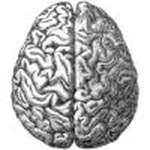November 29, 2013 weblog
Scientists explore memories, true and false

(Medical Xpress)—Not all memories are good and some might be so bad that they are debilitating; successful ways of coping with bad memories are to transform them into learning experiences and to derive strength from adversity. Another human reaction is to allow the memories to block the ability to move forward. In short, dwelling on rather than learning from the past is not a good thing. For some people who suffer trauma, though, moving forward may be far easier said than done. Scientists recognize the effects that events such as bombs, childhood abuse, and serious accidents have on human behavior and are exploring ways in which memory affects human behavior. In particular, a recent article in Popular Science calls attention to studies that are exploring ways to erase and even edit memories. "The hope is that this research will lead to medical treatments, especially for addiction and post-traumatic stress disorder (PTSD)."
Much of this type of research uses rodents as models and has been ongoing for a number of years. A 2010 article in Smithsonian magazine noted how researchers have found that a memory may be weakened if the animal was given an electric shock or a drug that interferes with a neurotrasnmitter. In short, memories could be disrupted.
While the research path of exploring memory via the effects of chemicals or drugs is not new, in June a report gained renewed attention when the researchers from Emory, University of Miami and Scripps Research Institute identified a compound that can reduce PTSD-like symptoms in mice after they are exposed to stress. While some mice were made to exhibit a heightened sense of fear similar to PTSD, the mice that were administered the compound SR-8993 were less likely to show that kind of stress. The paper was of interest because the discovery may eventually lead to treating people affected by trauma, such as preventing possible PTSD. "While many hurdles remain for SR-8993 or a related compound to become a drug used to prevent PTSD, these results are important first steps in understanding how such treatments may be effective," said Thomas Bannister, PhD, associate director of translational research and assistant professor of medicinal chemistry at Scripps Research Institute.
Also, work has continued in the area of false memory. Susumu Tonegawa at the Massachusetts Institute of Technology, who in 1994 founded the Center for Learning and Memory at MIT and, in 2002, the Picower Institute for Learning and Memory, has done work involving false memory planted in a mouse's brain. Last year, Tonegawa reported that individual memories in mice leave molecular signatures in the hippocampus region of the brain. Earlier this year, his group caused mice to falsely associate an old memory with a new context. That the scientists implanted a false memory in the brains of mice resonates with a phenomenon where people may claim they remember events or experiences, insisting their memory serves them correctly, that never happened. Tonegawa, a neuroscientist, has been interested in false memories; the mouse models created by the MIT team could help scientists examine complex questions about memories in people. He and his team have encoded memories in the brains of mice by manipulating neurons. Tonegawa's team have used optogenetics, which allows the control of individual brain cells.
Meanwhile, the positive and the negative implications of memory manipulations are not lost on scientists. Earlier this year, an article about-Tonegawa's work in The Guardian reported on the experiment and also turned to Chris French, head of the Anomalistic Psychology Research Unit at Goldsmiths, University of London. French said that the latest results were an important first step in understanding false memories' neural basis. Nonetheless, as the technology develops, said French, scientists need to think about its uses carefully. "Whatever means are used to implant false memories, we need to be very aware of the ethical issues raised by such procedures - the potential for abuse of such techniques cannot be overstated."
More information: picower.mit.edu/Faculty/Principal%20Investigators/susumu-tonegawa
© 2013 Medical Xpress

















